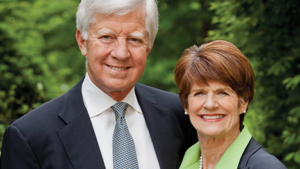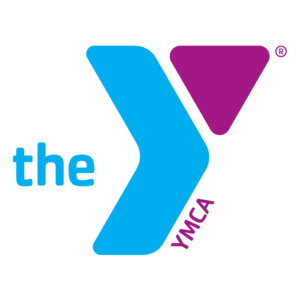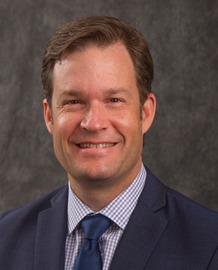Wellness via YMCAs: Interview with Penny George on a new integrative health philanthropic strategy
January 11, 2018
 by John Weeks, Publisher/Editor of The Integrator Blog News and Reports Editor’s note: This analysis article is not edited and the authors are solely responsible for the content. The views and opinions expressed in this article are those of the authors and do not necessarily reflect the official policy or position of Integrative Practitioner. The news from the Minneapolis StarTribune was that the philanthropists with the most significant impact in implanting integrative services in a medical delivery system in the United States were investing in a partnership with a YMCA. The George Family Foundation, led by Penny and Bill George, was the backer of the Penny George Institute that pioneered an outpatient-inpatient integrative health strategy at Minnesota’s Allina. Now they have committed $2.5-million to a “Wellbeing Center” at the downtown Minneapolis YMCA. In the article, Penny George is quoted this way: “Our goal is to create a healthier America. Self-care is the true primary care. People are the central agents of their own health and well-being, but they need knowledge and access to tools.” Services will include health coaching, nutrition guidance, acupuncture, massage, hydro-massage, aromatherapy, mediation, yoga and “well-being assessments that go beyond the scale or the treadmill.” These will be offered in the 3,500-square-foot George Wellbeing Center on the second floor of the new YMCA. I reached out to Penny George for a short interview about this direction for their family foundation’s giving. Her comments encapsulate hard won, if challenging lessons many have discovered in the quarter-century of integrative trial and error. The following interview is stitched together from our exchange.
by John Weeks, Publisher/Editor of The Integrator Blog News and Reports Editor’s note: This analysis article is not edited and the authors are solely responsible for the content. The views and opinions expressed in this article are those of the authors and do not necessarily reflect the official policy or position of Integrative Practitioner. The news from the Minneapolis StarTribune was that the philanthropists with the most significant impact in implanting integrative services in a medical delivery system in the United States were investing in a partnership with a YMCA. The George Family Foundation, led by Penny and Bill George, was the backer of the Penny George Institute that pioneered an outpatient-inpatient integrative health strategy at Minnesota’s Allina. Now they have committed $2.5-million to a “Wellbeing Center” at the downtown Minneapolis YMCA. In the article, Penny George is quoted this way: “Our goal is to create a healthier America. Self-care is the true primary care. People are the central agents of their own health and well-being, but they need knowledge and access to tools.” Services will include health coaching, nutrition guidance, acupuncture, massage, hydro-massage, aromatherapy, mediation, yoga and “well-being assessments that go beyond the scale or the treadmill.” These will be offered in the 3,500-square-foot George Wellbeing Center on the second floor of the new YMCA. I reached out to Penny George for a short interview about this direction for their family foundation’s giving. Her comments encapsulate hard won, if challenging lessons many have discovered in the quarter-century of integrative trial and error. The following interview is stitched together from our exchange.  Weeks: So why the YMCA? George: The overlap of our missions is astounding. The Y has pretty much been about mind-body-spirit for 140 years. The Minneapolis Y has a new enormous building going in the heart of downtown. It made this a perfect time. It’s one of the 3 largest Y’s in the US with a terrific leader in Glen Gunderson to whom the national Y looks for ideas and guidance. There is that potential for modeling. Weeks: This is a shift from George Foundation investment in transforming hospitals and medical delivery organizations. George: There are limits in health care with Trump. Even with the opioid crisis the most obvious integrative strategies like acupuncture in emergency rooms is slow. The Y seems like a better opportunity for innovation right now. It may make sense to us to have all these supportive health services in a hospital. But we all know it’s not happening any time soon. We know that hospitals are not good at curing chronic disease. I thought we could [make changes toward integrative health] by shifting the way health systems think. In fairness, they are coming around – they are just hamstrung by perverse incentives. It’s just not in the foreseeable future in hospitals. Weeks: The perverse incentives against the good sense of what many of us have been trying to accomplish have taught tough lessons, learned on the street by many of us. I see this as something of a course correction. George: It’s a consciousness shift. Weeks: Yet I was surprised to see in the StarTribune that the George Wellbeing Center offerings are basically portrayed like clinical services in a set of rooms. George: While technically correct and certainly part of meeting downtown Minneapolis’ Y member desires and expectation for services, this is not the heart of what will happen. This is less about specific services. What’s key is the creation of programming around prevention, recovery and optimization of health and well-being - spreading services and programs to where they best fit the local Y population - the greater Twin Cities Y has 27 different locations - and then ultimately across the nation through Ys. Most of what is most important at this Center will take place elsewhere in the downtown Y’s larger group spaces. Weeks: Thus, a lot of group services and community delivery context. Fits well with the powerful message about the importance of context that was my morning reading in Wayne Jonas’ new book How Healing Works. George: At the Y people are coming for things. They are already taking ownership of what they want. it’s not like in the hospital when they think things will be done to them. I am reading a book on integrative approaches for Alzheimer’s’ that offers all kinds of steps people can take. The Y could be a perfect place to help people with these preventive and restorative tools. Weeks: So at the Y you have a context with shifted incentives both inside the clients – in terms of their expectations – plus the shift to a wellbeing approach that is the Y’s mission. George: The Y has a strong youth program as well. To get ahead on wellness, we need to reach kids. A typical medical system is not where this is going to happen. Weeks: It begs questions about whether more of us should be working on methods outside the disease-focused industry. George: What I am hoping is this will be is a model – we are trying to develop projects that can be tested out through the Twin Cities Y, then we’ll move out into the state then perhaps a national platform. I think we have a ripe opportunity. Weeks: I appreciate your perseverance, and your flexibility with your vision. Seems a smart move. Thanks for your time.
Weeks: So why the YMCA? George: The overlap of our missions is astounding. The Y has pretty much been about mind-body-spirit for 140 years. The Minneapolis Y has a new enormous building going in the heart of downtown. It made this a perfect time. It’s one of the 3 largest Y’s in the US with a terrific leader in Glen Gunderson to whom the national Y looks for ideas and guidance. There is that potential for modeling. Weeks: This is a shift from George Foundation investment in transforming hospitals and medical delivery organizations. George: There are limits in health care with Trump. Even with the opioid crisis the most obvious integrative strategies like acupuncture in emergency rooms is slow. The Y seems like a better opportunity for innovation right now. It may make sense to us to have all these supportive health services in a hospital. But we all know it’s not happening any time soon. We know that hospitals are not good at curing chronic disease. I thought we could [make changes toward integrative health] by shifting the way health systems think. In fairness, they are coming around – they are just hamstrung by perverse incentives. It’s just not in the foreseeable future in hospitals. Weeks: The perverse incentives against the good sense of what many of us have been trying to accomplish have taught tough lessons, learned on the street by many of us. I see this as something of a course correction. George: It’s a consciousness shift. Weeks: Yet I was surprised to see in the StarTribune that the George Wellbeing Center offerings are basically portrayed like clinical services in a set of rooms. George: While technically correct and certainly part of meeting downtown Minneapolis’ Y member desires and expectation for services, this is not the heart of what will happen. This is less about specific services. What’s key is the creation of programming around prevention, recovery and optimization of health and well-being - spreading services and programs to where they best fit the local Y population - the greater Twin Cities Y has 27 different locations - and then ultimately across the nation through Ys. Most of what is most important at this Center will take place elsewhere in the downtown Y’s larger group spaces. Weeks: Thus, a lot of group services and community delivery context. Fits well with the powerful message about the importance of context that was my morning reading in Wayne Jonas’ new book How Healing Works. George: At the Y people are coming for things. They are already taking ownership of what they want. it’s not like in the hospital when they think things will be done to them. I am reading a book on integrative approaches for Alzheimer’s’ that offers all kinds of steps people can take. The Y could be a perfect place to help people with these preventive and restorative tools. Weeks: So at the Y you have a context with shifted incentives both inside the clients – in terms of their expectations – plus the shift to a wellbeing approach that is the Y’s mission. George: The Y has a strong youth program as well. To get ahead on wellness, we need to reach kids. A typical medical system is not where this is going to happen. Weeks: It begs questions about whether more of us should be working on methods outside the disease-focused industry. George: What I am hoping is this will be is a model – we are trying to develop projects that can be tested out through the Twin Cities Y, then we’ll move out into the state then perhaps a national platform. I think we have a ripe opportunity. Weeks: I appreciate your perseverance, and your flexibility with your vision. Seems a smart move. Thanks for your time.  Coda: The Star-Tribune article includes information on the George’s philanthropic operations: $65-million with grants totaling $3.5-million annually to some 80 organizations. Gunderson, the influential CEO for the Y, is quoted speaking to the realization that typical medical delivery is “a sick-care system” in which we “wait for disease to manifest and we treat it.” Individuals, he said, “want more tools to maintain physical and emotional health than simply those that treat it once they fall ill.” The George-YMCA partnership at the George Wellbeing Center – and beyond - is set to do this.
Coda: The Star-Tribune article includes information on the George’s philanthropic operations: $65-million with grants totaling $3.5-million annually to some 80 organizations. Gunderson, the influential CEO for the Y, is quoted speaking to the realization that typical medical delivery is “a sick-care system” in which we “wait for disease to manifest and we treat it.” Individuals, he said, “want more tools to maintain physical and emotional health than simply those that treat it once they fall ill.” The George-YMCA partnership at the George Wellbeing Center – and beyond - is set to do this.



















SHARE